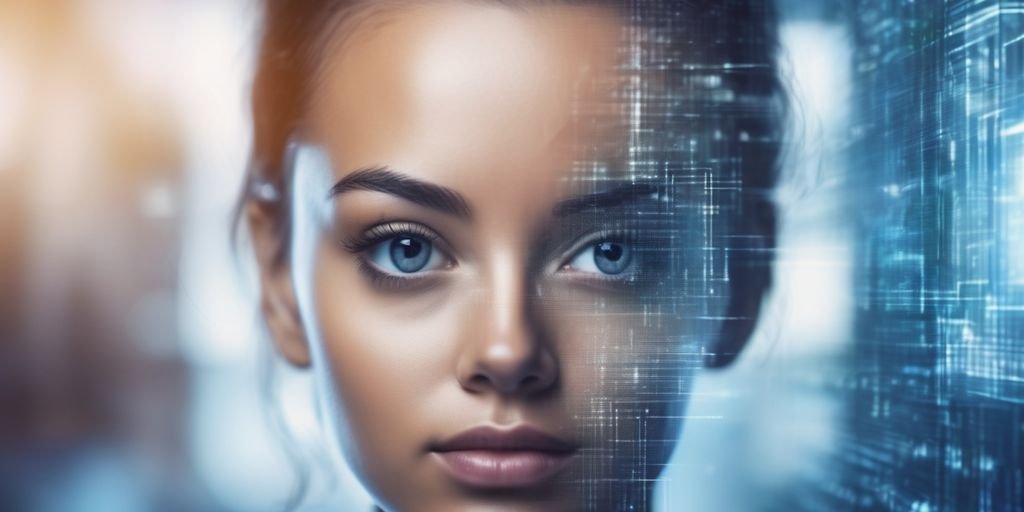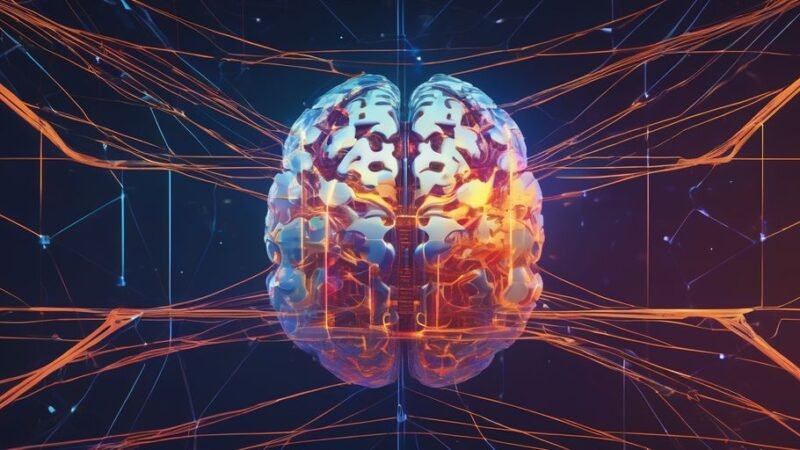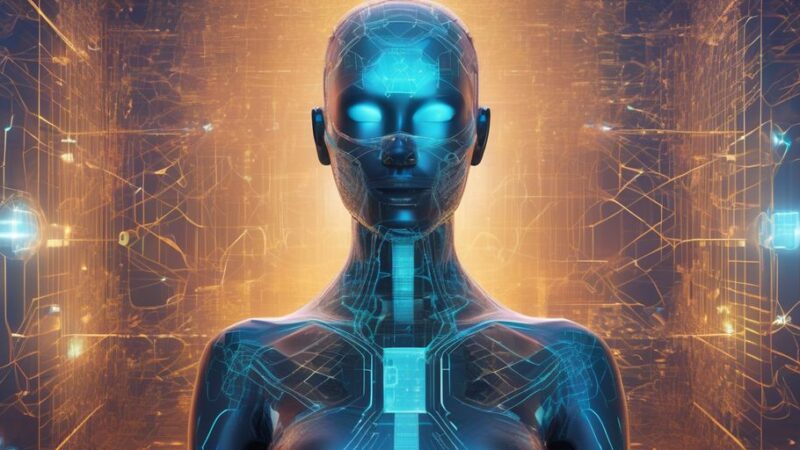The Ethical Dilemma of AI Generated Nude Images of Celebrities

The emergence of AI-generated nude images of celebrities has ignited a fiery debate about the ethical boundaries of digital content creation. This issue, highlighted by cases involving public figures like Taylor Swift, underscores the pressing need for a discussion on consent, privacy, and the responsible use of technology. The ethical dilemma extends beyond the celebrities to include all individuals, as AI’s capabilities grow more sophisticated.
Key Takeaways
- The creation of AI-generated nude images without consent raises significant ethical and privacy concerns.
- Legal frameworks currently lag behind technological advancements, leaving gaps in protection against such abuses.
- Public figures are particularly vulnerable to reputation damage, but the issue also affects individuals at all levels of society.
- The use of humor in discussing these topics can help highlight the absurdity but must be balanced with sensitivity to the seriousness of the issues.
- Future preventative measures should include public education, technological solutions to prevent misuse, and the development of ethical AI frameworks.
Understanding the Ethical Landscape
Defining the ethical boundaries of AI
The ethical boundaries of AI are crucial in determining what is permissible under the guise of technological advancement. The creation of AI-generated nude images of celebrities without their consent crosses these boundaries, highlighting the need for clear ethical guidelines in AI development and application.
The role of consent in digital creations
Consent is a fundamental aspect of ethical digital creation. Without explicit consent from the individuals involved, creating and distributing digital content, especially sensitive content like nude images, is ethically indefensible. This lack of consent not only violates personal rights but also raises significant legal concerns.
Privacy concerns with AI-generated content
Privacy is a cornerstone of personal security and dignity. AI-generated content that invades personal privacy, such as unauthorized nude images, can cause irreparable harm. It is imperative to enforce strict privacy protections in the realm of AI to prevent such violations and protect individuals from unauthorized use of their likeness.
The Impact on Public Figures
The case of Taylor Swift and others
In recent years, the misuse of AI to generate unauthorized images has notably affected celebrities like Taylor Swift. These incidents highlight a disturbing trend where public figures become involuntary subjects in digital content that can severely impact their personal and professional lives. The spread of such content can damage reputations and lead to significant emotional distress.
Legal implications for celebrities
Celebrities face unique challenges in protecting their image and legal rights against AI-generated content. The lack of clear legal frameworks often leaves them vulnerable. Efforts to combat these violations through legal channels can be cumbersome and ineffective, emphasizing the need for updated laws that can keep pace with technological advancements.
Public perception and reputation damage
Public figures rely heavily on their public image, which can be irreparably harmed by AI-generated content. The rapid spread of such images through social media platforms only compounds the issue, leading to a swift and often irreversible shift in public perception. This not only affects their personal lives but also their professional opportunities and relationships.
Blockquote: The ethical implications of AI-generated content are profound, affecting not just the individuals involved but the broader societal norms and values.
Technological Capabilities and Misuse
Advancements in AI technology
The rapid advancement in AI technology has significantly increased the capabilities of creating hyper-realistic digital content. This progress, while beneficial in many sectors, also poses serious ethical challenges when misused. The ease of generating deepfake content, including AI-generated nude images of celebrities using tools like [Makenude AI](https://fas.st/t/pMxt2cTn), has become alarmingly simple.
The ease of creating and spreading fake images
With tools readily available, virtually anyone with basic computer skills can create and distribute fake images. This accessibility has led to a surge in the creation of unauthorized and harmful content, spreading across the internet at an unprecedented rate.
Potential for abuse and harassment
The misuse of AI technologies such as deepfakes can lead to severe consequences for individuals, especially public figures. The potential for abuse and harassment is vast, with individuals finding themselves victims of non-consensual digital manipulation. The impact of such misuse is not only personal but also societal, as it challenges the trust and integrity of digital content.
When does the use of technology make an otherwise innocuous fantasy wrong?
Societal Reactions and Legal Responses
Public outcry and social media reactions
The revelation of AI-generated nude images of celebrities has sparked significant public outcry and a flurry of activity on social media platforms. Discussions often revolve around the ethical implications and the lack of consent from those depicted. This has led to a broader conversation about digital ethics and the responsibilities of AI developers and users.
Current laws and their limitations
Despite the growing concern, current laws struggle to keep pace with the rapid advancements in AI technology. Many jurisdictions lack specific legislation that addresses the creation and distribution of AI-generated content, leaving significant legal grey areas. This gap underscores the need for updated laws that can effectively protect individuals against digital exploitation.
Proposals for new regulations
In response to the increasing incidents and public pressure, there are now proposals for new regulations aimed at curbing the misuse of AI technologies. These proposals often include measures to ensure clearer consent protocols and stricter penalties for violations. The aim is to create a safer digital environment and uphold the dignity of individuals in the digital realm.
The Role of Humor in Ethical Discussions
Using humor to highlight absurdity
Humor often serves as a tool to underscore the absurdity of certain situations, such as the use of AI to generate inappropriate content. It can effectively point out the irrationality and ethical missteps in a way that is accessible and engaging to the audience.
The risks of trivializing serious issues
While humor can be a powerful means of communication, there is a risk that it might trivialize the gravity of serious ethical issues. It is crucial to strike a balance where humor does not undermine the significance of topics like privacy and consent.
Balancing humor and sensitivity
Achieving the right balance between humor and sensitivity is essential, especially in discussions involving ethical dilemmas. It is important to ensure that humor does not offend or belittle the experiences of those affected by the misuse of AI technology.
Future Outlook and Preventative Measures
Educating the Public and AI Users
Education is key in preventing the misuse of AI technologies. Public awareness campaigns and educational programs can inform users about the ethical use of AI and the dangers of creating or spreading harmful content. Workshops, seminars, and online courses can be instrumental in achieving this goal.
Technological Solutions to Prevent Misuse
To safeguard against the misuse of AI, technological controls are essential. These include watermarking AI-generated content, developing detection tools to spot fakes, and implementing strict access controls on AI systems. Monitoring AI usage post-launch is crucial to minimize harms even in worst-case scenarios.
Building Ethical AI Frameworks
The development of AI should integrate ethical considerations from the outset. Collaborations among tech companies, ethicists, and policymakers can lead to the creation of robust ethical frameworks. These frameworks should prioritize transparency, accountability, and inclusivity in AI development, ensuring that all societal groups are represented in decision-making processes.
Personal Stories and Case Studies
Incidents involving AI-generated images
The proliferation of AI-generated images has led to numerous incidents that have affected individuals deeply. One notable case involved fake images of celebrities at a high-profile event, which spread rapidly across social media platforms, causing confusion and distress among fans and the public.
Impact on victims and their testimonies
Victims of AI-generated image abuse often experience significant emotional and psychological distress. A survivor of physical assault shared how the creation of such images resurfaced trauma during routine daily activities, highlighting the severe personal impact of these technologies.
Learning from real-world examples
By examining these case studies, we can identify patterns and develop strategies to mitigate harm. It is crucial to understand the full scope of consequences that these technologies can impose on individuals to foster a more ethical approach in AI development and usage.
Conclusion
The ethical concerns surrounding AI-generated nude images of celebrities are profound and multifaceted. As technology advances, the ease and speed with which such content can be created and disseminated pose significant challenges to privacy, consent, and ethical standards. The cases involving public figures and ordinary individuals alike highlight the urgent need for robust legal frameworks and ethical guidelines to govern the use of AI in generating sensitive content. It is imperative that society addresses these issues with the seriousness they deserve, ensuring that technological advancements do not come at the cost of human dignity and rights.
Frequently Asked Questions
What are the ethical concerns raised in the creation of AI-generated nude images of celebrities like Taylor Swift?
The primary ethical concerns include the lack of consent involved in creating and sharing these images, as well as the ethical implications of using someone else’s body without permission.
Why is humor brought into the discussion of AI-generated nude images of celebrities?
Humor is used to highlight the absurdity and inappropriateness of using AI technology to generate explicit content, underscoring the need to consider the serious implications of such actions.
How does the lack of consent impact the victims of AI-generated nude images?
The lack of consent can lead to significant emotional and psychological distress for the victims, as their likeness is used without permission, potentially damaging their reputation and public image.
What legal protections currently exist against the creation and distribution of AI-generated nude images?
Current laws vary widely, but many are outdated and do not specifically address the nuances of AI-generated content, leaving significant gaps in protection against such abuses.
How are social media platforms responding to the spread of AI-generated nude images?
Social media platforms are often criticized for not acting swiftly enough to remove harmful content. However, some are beginning to implement more stringent policies and technologies to detect and prevent the spread of such images.
What future regulations are being proposed to combat the misuse of AI in creating sensitive content?
Proposals for new regulations include stricter laws on digital consent, enhanced penalties for misuse of AI, and requirements for AI developers to implement safeguards that prevent the creation of non-consensual explicit content.






